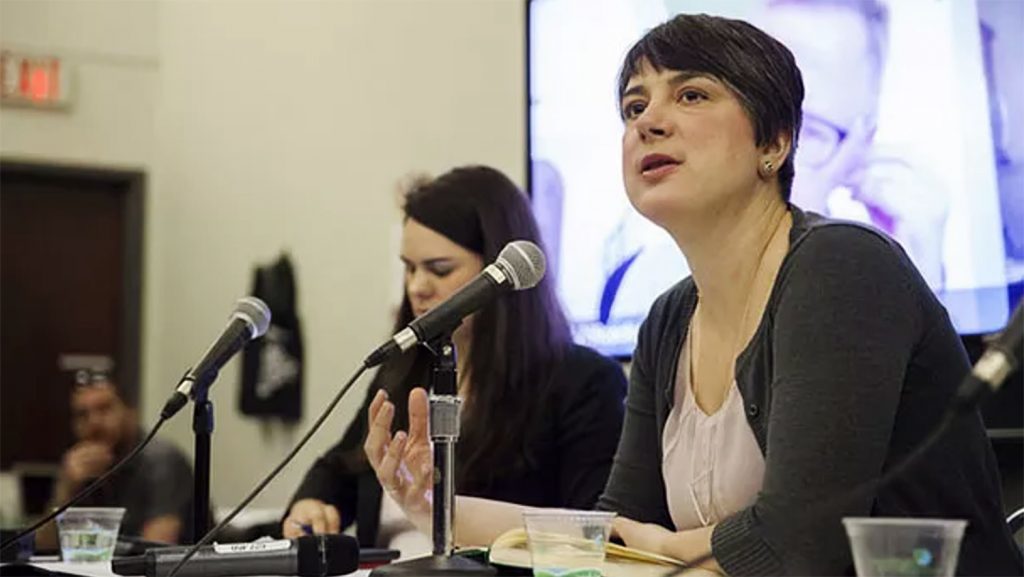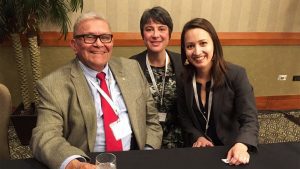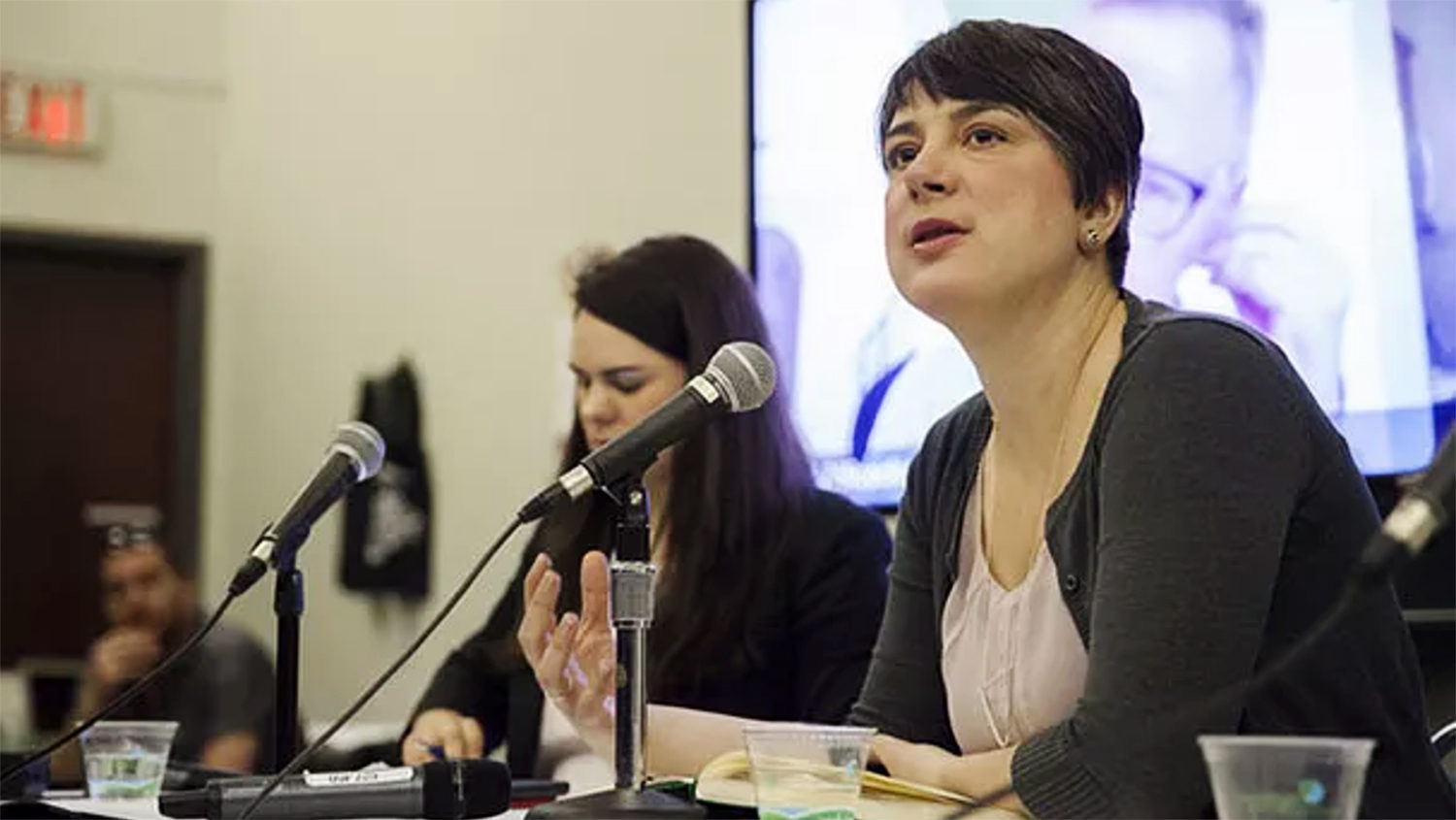
In its 2015 report, the Truth and Reconciliation Commission demanded journalists heed their role in Canada’s reconciliation process with Indigenous peoples. For Erin Millar, editor-in-chief and CEO of Discourse Media, the TRC report exposed her to the testimony of residential school survivors. She cites these testimonies as her personal motivation to reflect on how Discourse could answer the TRC’s calls to action.
As an independent start-up, Discourse prides itself on its ability to take time with projects. Millar explains in a recent Medium post that because Discourse is not funded by advertisers like larger outlets, its success is not measured by a daily rush to get page views. “Rather than produce content that millions click on, we’re interested in creating content that a smaller audience can use .”
In an interview with the Ryerson Review of Journalism, Millar says, “We spent like six months just sort of listening and going to events and asking Indigenous and non-Indigenous people who were engaged in the Truth and Reconciliation Commission what needs to be done in the media, what was being done, and what we could contribute.”
What manifested from these discussions is Toward Reconciliation, a project dedicated to covering how Canada is responding to the TRC’s objectives. The platform includes investigative features, data-driven interactive posts, and resources for journalists on how to tackle Indigenous issues.
“Unless journalists start sharing the success stories and the efforts non-Indigenous Canadians are making to work towards those success stories, then Canadians won’t know about them…”
Millar admits that part of this effort included confronting the demographics among Discourse’s own staff. “It was important for us to round out our team and work with really great Indigenous journalists who are involved in our story meetings and also in reporting. We are a majority non-Indigenous newsroom, like most newsrooms, so we needed to address that as well.”
When asked about funding, Millar refers to the same Medium post which breaks down Discourse’s funding sources from March 2014 to March 2016. These revenue streams include content commissioned by other media outlets, philanthropic organizations, crowdfunding, and consulting as well as producing reports, workshops, and speaker series for various agencies and conferences. Millar says the range of sources is key to protecting Discourse’s editorial integrity. This way, Discourse is not reliant on a single funding partner who could monopolize its editorial direction. When it partners with philanthropic organizations, contracts include a clause about journalistic independence.
While numbers have not yet been released for the remainder of 2016, Millar says her team is considering expanding their use of crowdfunding.
Because of Discourse’s funding model, it has the luxury of setting its own agenda. Its mandate allows it small staff to take their time researching topics for months before a new project is launched. This approach allowed Millar to have thoughtful conversations with Indigenous journalists and organizations before jumping into this project, like National Centre of Truth and Reconciliation, a group which Millar says informed their editorial strategy.
Duncan McCue, host of Cross Country Checkup on CBC Radio One, says that while mainstream newsrooms can be be resistant to change, independent start-ups like Discourse are “more nimble and frankly they’re younger.” McCue is currently a visiting journalist at Ryerson helping shape the curriculum on Indigenous reporting.

One of the ways Discourse exhibits this flexibility is by collaborating with competing outlets. “When you’re in an industry that’s very competitive like journalism, it’s important to have that independent neutral broker that is able to have conversations across different media outlets,” explains Millar. She notes that many of the outlets Discourse works with are competing for the same readers. Yet, because Discourse is an independent entity, it can work with all of them. Consulting and re-publishing their content with larger outlets is part of their funding model.
For example, their investigation into the Lax Kw’alaams’ support for the Pacific NorthWest pipeline was re-published by Buzzfeed. Likewise, they collaborated with Maclean’s on its piece decrying Canada’s prisons as “the new residential schools,” contributing to research efforts and collaborating on a survey that asked Indigenous and non-Indigenous students in the prairie provinces about their interactions with police. Millar says that while Maclean’s Nancy Macdonald took the lead on reporting, the reporter was frustrated that she could only find anecdotal evidence of police profiling and was struggling to find hard data to support her story. Discourse became a resource to help file Freedom Of Information requests and collect data on the issue. Millar says they are currently working on a research partnership which will culminate in a public database that will track how different institutions are responding to the TRC report.
McCue admires Discourse’s desire to focus on reconciliation. “Unless journalists start sharing the success stories and the efforts non-Indigenous Canadians are making to work towards those success stories, then Canadians won’t know about them…. Which is why the focus that Discourse is aiming for in terms of trying to share stories of reconciliation is an excellent and essential one. It’s also difficult.” He says that while some journalists at mainstream outlets might perceive this work as a form of advocacy, he rejects that view. For him, covering stories of reconciliation are necessary to thorough Indigenous coverage.
Angela Sterritt, a reporter for CBC Indigenous and CBC Vancouver, says she values Discourse’s efforts to be transparent about its process. “I think one interesting thing that Discourse Media does is that they have discussions about what they’re doing, and there’s no way I can really do that with the CBC just because of the time restraints that I have.” Sterritt continues, “I like reading about that because it’s helpful of journalists in really carefully considering what they’re doing.”
Sterritt points out that in terms of reporting on reconciliation, both CBC and APTN were specifically named in the TRC report in part because they deliver content in multiple Indigenous languages. But, Discourse still has a key role to play in reconciliation journalism. “For me, it’s important to have a public broadcaster, and a variety of democratically-driven media organizations that can hold different organizations to account.” Sterritt continues, “It’s one part of what should be a very robust and thorough and investigative and respected media.”

